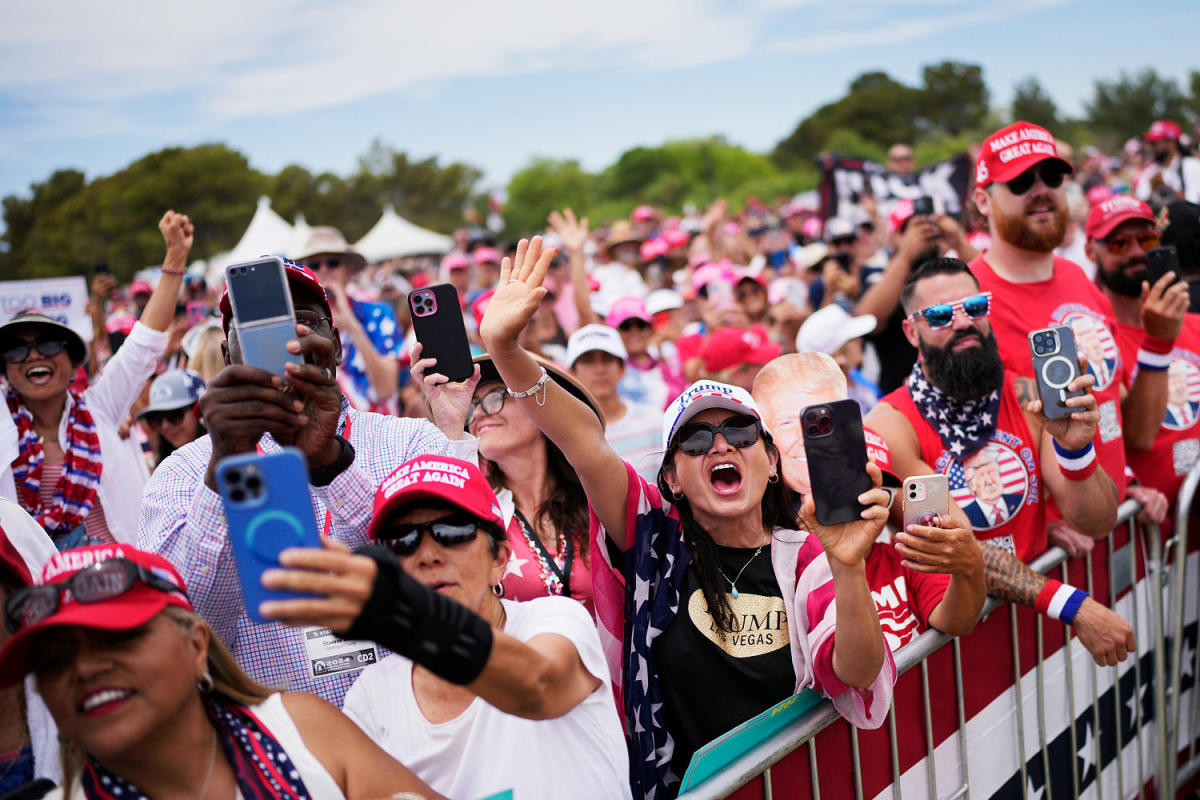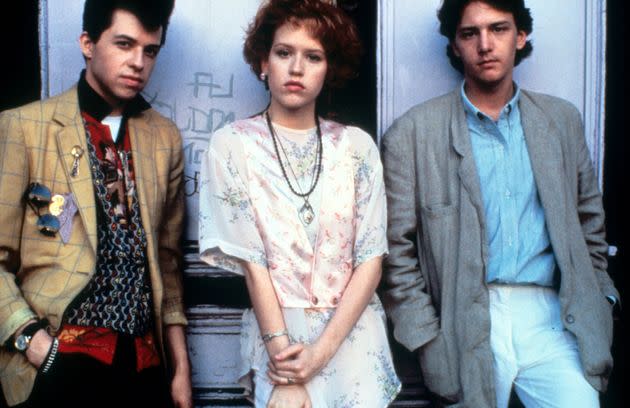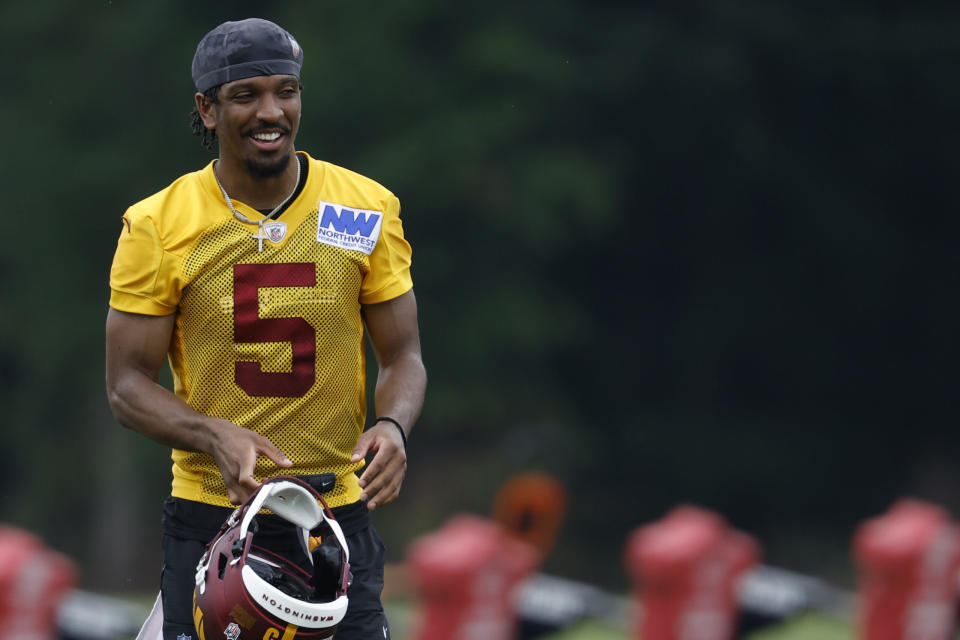
Trump’s reliance on his base’s collective amnesia could go awry
An interesting detail emerged from a recent CBS/YouGov poll on how well Republican voters understanding the stakes of Donald Trump’s campaign for the White House. Only 35% of Republicans polled, as noted by The Washington Post’s Aaron Blake, say they know that Trump has been indicted for conspiring to overturn the 2020 election. Almost the same number — 34% — don’t think he’s been indicted for his attempts to stop the peaceful transfer of power.
Just 35% of Republicans say they’re familiar with Trump being indicted for conspiring to overturn the 2020 election.
Nearly as many — 34% — say he has not been indicted for that. pic.twitter.com/wPfwTqbUZc
— Aaron Blake (@AaronBlake) June 10, 2024
As readers here undoubtedly know, special counsel Jack Smith has, in fact, charged Trump with multiple counts of conspiring to defraud the government and hold onto power. “The purpose of the conspiracy was to overturn the legitimate results of the 2020 presidential election by using knowingly false claims of election fraud to obstruct the government function by which those results are collected, counted and certified,” the indictment charges.
Those charges are on hold pending a Supreme Court decision on Trump’s claims of presidential immunity. But for a majority of Republican voters, those charges simply do not exist.
Welcome, once again to Trump’s fact-free alternate reality universe, in which Trump is relying on disinformation, ignorance, and voter amnesia to propel himself back to the Oval Office.
On the stump Trump freely rewrites history, peddles bizarre conspiracy theories, and aggressively memory-holes the darker parts of his record.
Thus far, it has been working for him.
A recent poll from Marquette Law School found that half of Republicans don’t believe Trump had any classified documents at Mar-a-Lago, despite photographic evidence of their presence. Without evidence, Trump has also convinced an overwhelming majority of his supporters — 80% — that the charges in the New York hush money case came at the direction of the Biden administration, rather than solely by New York prosecutors. There is, of course, no basis in fact for that claim. Even one of Trump’s high-profile former attorneys, Joe Tacopina, has dismissed the allegation as nonsense.
“Joe Biden or anyone from his Justice Department has absolutely zero to do with the Manhattan district attorney office,” Tacopina told MSNBC. “We know that’s not the case, and even Trump’s lawyers know that’s not the case,” he said. “People who say that — it’s scary that they really don’t know the law or what they’re talking about.”
But, as Tacopina surely knows, this is precisely the message that Trump is pushing. And it is working, fueling Republican calls for retribution and payback if Trump returns to power.
Trump is also relying on GOP voters believing his revisionist history of what happened on Jan. 6, 2021. At a recent Nevada rally, he called rioters who attacked the Capitol “warriors” who had been treated “horrifically.” Trump has repeatedly suggested he would issue sweeping pardons for the attackers. Increasingly, he has embraced conspiracy theories suggesting that government agents may have incited rioters to enter the Capitol building that day.
“All they were doing is protesting a rigged election,” Trump told supporters in Nevada. “That’s what they were doing. And then the police say: Go in! Go in! Go in!”
Trump also referred to several other conspiracy theories that have flourished in the right-wing fever swamps.
“How about scaffold Joe, the guy on the scaffold?” Trump asked at one point. “Or how about the big FBI guy or wherever he comes from: ‘Go on in, everybody! Go on in! What a set up that was! What a horrible, horrible thing!”
All of those rumors, theories, and allegations have been repeatedly debunked, but that has made no difference to Trump or, apparently, to the MAGA base. Last December, a Washington Post-University of Maryland poll found Republicans more sympathetic to the rioters than ever. Only 18% of Republicans say the Jan. 6 protesters were “mostly violent,” while 72% of Republicans polled said that “too much is being made of the storming” of the Capitol. Only 24% thought it was an “attack on democracy that should never be forgotten.”
Those numbers are consistent with Trump’s success in convincing Republicans of the big lie. Polls consistently show that most Republican voters do not believe that Biden was legitimately elected in 2020. Last year, nearly 70% of GOP voters thought Biden’s 2020 win was illegitimate, according to a CNN poll — despite voluminous evidence to the contrary.
Trump has especially benefitted from this widespread amnesia about his actual record when it comes to younger voters. A recent poll of voters ages 18-30 found that many of them simply don’t know what Trump has said or done in the past.
A poll by the Democratic-aligned public opinion research group Blueprint found that less than half of registered voters under 30 had even heard of Trump’s call for a Muslim ban, his “very fine people on both sides” comments relating to neo-Nazis in Charlottesville in 2017, or his insistence that John McCain “is not a war hero” because he was a prisoner of war. Similarly, most young voters have never heard of Trump’s more egregious comments about women, minorities or his denigration of immigrant communities.
“It might shock those of us who eat, sleep, and breathe politics, but young voters really don’t remember the daily controversies of the Trump years and grew up understanding this kind of rhetoric as politics as usual,” Blueprint pollster Evan Roth Smith said.
In one sense, this voter ignorance is a kind of superpower for Trump. But it is also a potential weakness, especially because he is relying heavily on “disengaged voters” for his current political strength. A recent New York Times analysis found that Trump’s narrow polling lead “is built on gains among voters who aren’t paying close attention to politics, who don’t follow traditional news and who don’t regularly vote.”
But what happens when the disengaged voters become engaged or when tuned-out voters start to pay attention? What happens when younger voters are told that Trump once said that two non-white congresswomen should “go back” to the “totally broken in crime infested places from which they came”? Or that in 2017, he said Haitian immigrants to the United States “all have AIDS” and that Nigerians would never “go back to their huts” after seeing the United States. The Blueprint poll found that huge majorities of young voters are actually bothered by the comments when they learned of them.
And what happens when voters get more details about Trump’s crimes, or are reminded of what and who he is? What happens when the memory holes are filled?
This is a potential opportunity not just for the Biden campaign, but also for the media. If Biden’s camp plays its cards right, Trump may find out that a campaign that relies on ignorance and amnesia is far more fragile than it looks now.
This article was originally published on MSNBC.com

